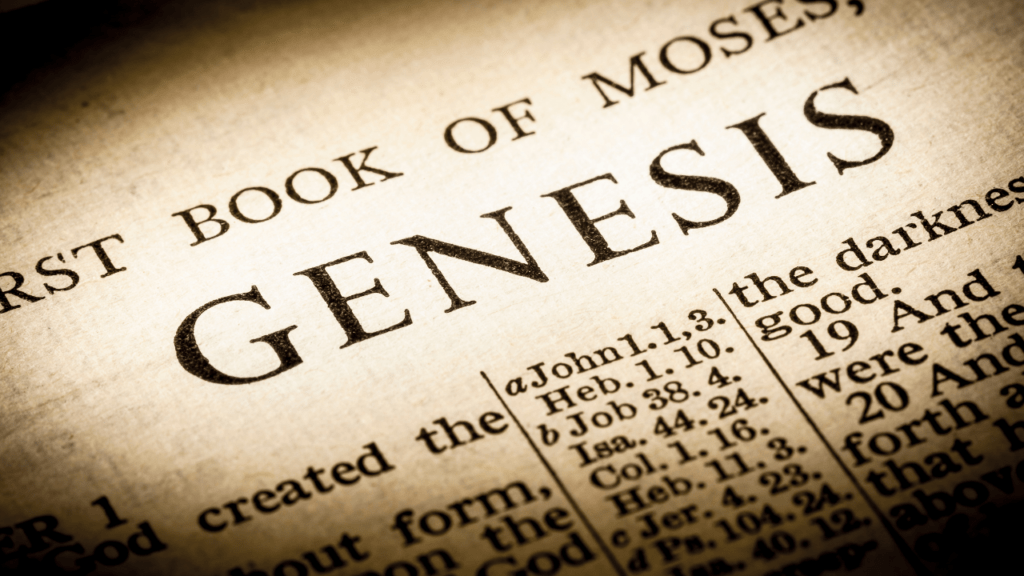No products in the cart.
The Inception of Faith: Tracing the Origins of Christianity
This post contains affiliate links.
Christianity, a global religion with over 2.8 billion followers, traces its origins back to ancient times in 1st-century Israel. It emerged from the teachings of Jesus of Nazareth, a Jewish preacher who proclaimed the imminent arrival of the Kingdom of God. By exploring the origin of this faith, we can understand how it has become the world’s most significant and widespread religion today.
Key Takeaways:
- Christianity originated in 1st-century Israel through the teachings of Jesus of Nazareth.
- Jesus proclaimed the imminent arrival of the Kingdom of God and gained a following of disciples.
- The early followers, known as Jewish Christians, considered themselves disciples of Jesus.
- Christianity started as a sect within Judaism but gradually diverged from it.
- Despite occasional persecution, Christianity spread rapidly and became established by the 3rd century.
The Life and Ministry of Jesus
Jesus of Nazareth, a Jewish preacher from the 1st century, is the central figure of Christianity. He proclaimed the imminent arrival of the Kingdom of God and gained a following of disciples who believed him to be the messiah predicted by the Jewish prophets.
Jesus performed miracles and taught profound moral and ethical teachings that resonated with his followers. However, his teachings and popularity also attracted opposition from religious authorities, leading to his trial, crucifixion, and death in Jerusalem.
According to the belief of his followers, Jesus was resurrected from the dead, heralding the victory over sin and offering the hope of eternal life. The life, teachings, and death of Jesus became the focal point of the Christian faith and the message carried by the early disciples as they spread Christianity to different regions.
The Spread of Christianity
Following the death and resurrection of Jesus, his disciples, known as apostles, embarked on missions to spread the message of Christianity. The initial followers were predominantly Jewish, and the early movement was centered in Jerusalem and other Jewish communities.
As the disciples spread their message, they encountered increasing numbers of Gentiles (non-Jews) drawn to Jesus’s teachings. This marked a significant moment in the expansion of Christianity as the movement ventured beyond its Jewish origins.
Apostolic Council and Gentile Missions
The Apostolic Council in Jerusalem played a pivotal role in the growth of Christianity among Gentiles. During this council, it was decided that Gentile converts did not need to adhere to Jewish customs such as circumcision and dietary laws. This decision allowed for the rapid expansion of Christianity beyond Jewish communities, reaching a wider audience and embracing cultural diversity.
As Christianity reached Gentiles, one of the prominent figures in its early expansion was Paul the Apostle. Paul played a crucial role in preaching to Gentiles and establishing Christian communities throughout the eastern cities of the Roman Empire.

The Significance of Baptism
Baptism, a water ritual symbolizing repentance and turning to God, became the rite of admission for new converts to Christianity. Through baptism, individuals publicly declared their faith in Jesus Christ and their commitment to his teachings. This act of initiation served as a visible symbol of personal transformation and marked the beginning of their journey as followers of Christ.
The apostles’ dedication propelled the spread of Christianity, the acceptance of Gentile converts, and the establishment of Christian communities. Through their missions and the significance of baptism, the early followers of Jesus laid the foundation for the global growth and impact of Christianity.
Christianity’s Impact and Development
Christianity has significantly shaped Western civilization, leaving an indelible mark on society and culture. After the fall of the Roman Empire, Christianity emerged as a pillar of knowledge preservation and transmission and the establishment of educational institutions. The monastic tradition within Christianity contributed to the development of art, architecture, and literature, with monks playing a crucial role in preserving ancient texts through meticulous transcription and illumination.
However, as with any significant religious movement, differences in theology and practice led to divisions within Christianity. One notable schism occurred in 1054 and is known as the East-West Schism. This formal split between the Western Roman Catholic Church and the Eastern Orthodox Church had lasting political and theological consequences. It marked a crucial turning point in the history of Christianity, with the two branches adopting distinct practices, beliefs, and hierarchies.
Centuries later, the Protestant Reformation in the 16th century, led by Martin Luther, challenged the authority of the Catholic Church and further fragmented Christianity. Luther’s ninety-five theses criticized the sale of indulgences and emphasized the importance of faith and personal interpretation of scripture. This movement gave rise to various Protestant denominations, such as Lutheran, Calvinist, and Anglican. The Reformation not only brought about religious conflicts but also influenced the political landscape of Europe, as rulers aligned themselves with different religious factions.
Key Points:
- The fall of the Roman Empire allowed Christianity to emerge as a central force in preserving knowledge and establishing educational institutions.
- The East-West Schism in 1054 formally separated the Eastern Orthodox Church from the Western Roman Catholic Church.
- The Protestant Reformation, spearheaded by Martin Luther in the 16th century, challenged the authority of the Catholic Church and led to the establishment of various Protestant denominations.
- Christianity’s impact on Western civilization extends to art, architecture, literature, and education.
In the modern era, Christianity has undergone significant changes and adaptations. Traditional Christian regions in the West have seen a decline in religious participation, while Christianity has witnessed remarkable growth in the global South and East. The spread of Christianity throughout Africa, Asia, and Latin America has transformed the religious landscape in these regions, resulting in diverse interpretations of faith and new forms of worship.
Christianity remains the most significant and geographically widespread religion globally, with many denominations and interpretations. Its impact on Western civilization, from its early contributions to knowledge and education to the schisms and reformations that have shaped its development, continues to shape the cultural and religious landscape of the modern world.
Conclusion
Christianity, a global religion with over two billion followers, traces its origins back to 1st-century Israel and the teachings of Jesus of Nazareth. Jesus proclaimed the imminent arrival of the Kingdom of God and attracted a devoted following of disciples. His crucifixion and resurrection form the foundation of Christian faith, offering believers the hope of eternal life.
The early disciples of Jesus tirelessly spread the message of Christianity, starting within Jewish communities and later expanding to Gentiles throughout the Roman Empire. The impact of Christianity on Western civilization cannot be overstated. It has influenced art, education, and governance, shaping numerous societies’ cultural and social fabric.
Throughout history, Christianity has experienced schisms and reformations, resulting in the formation of various Christian denominations. Today, Christianity is a diverse and global religion, reaching beyond its traditional Western stronghold. With its origins, spread, impact, and development, Christianity has profoundly shaped the religious and cultural landscape of the world.
This post contains affiliate links.











